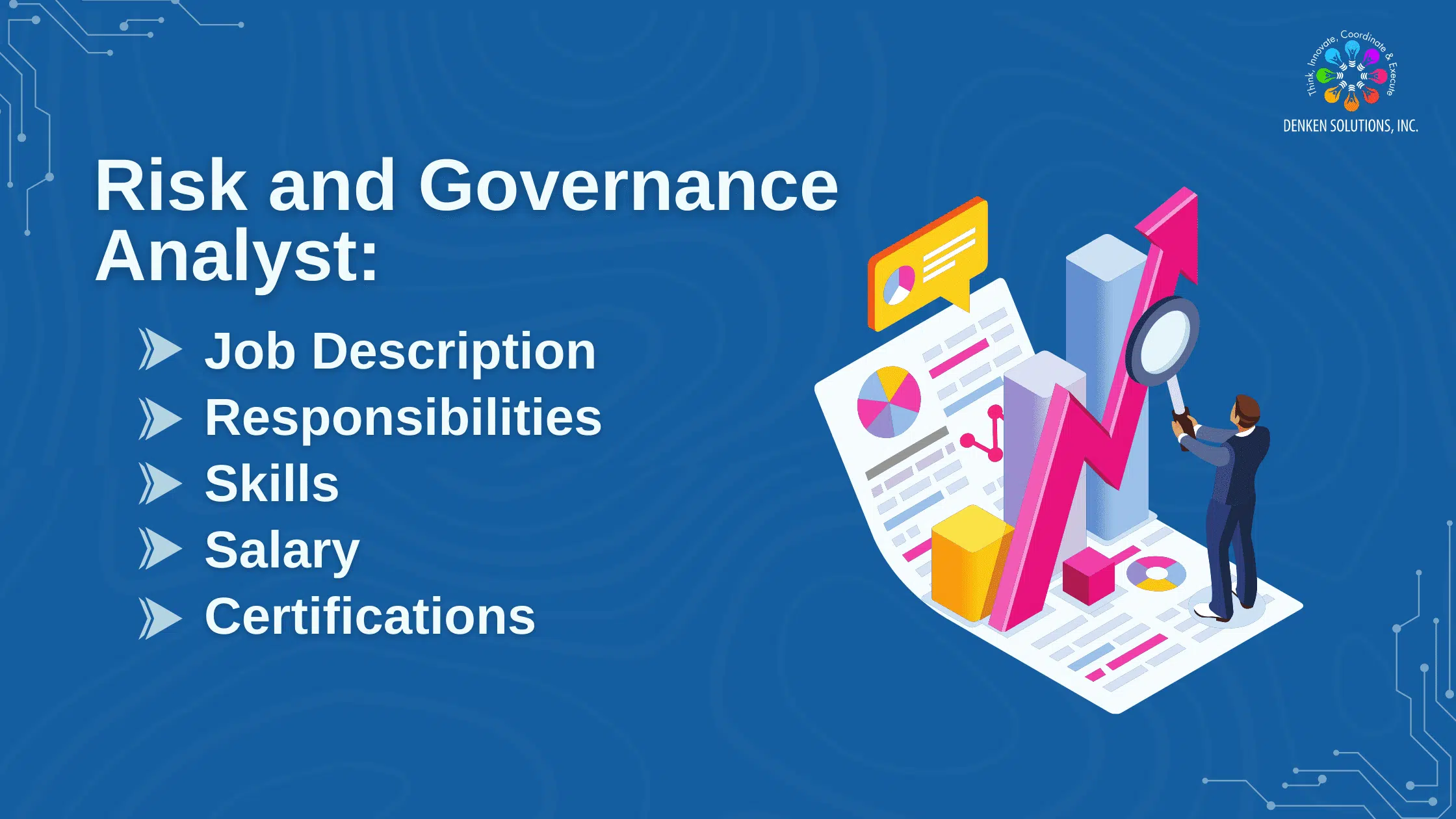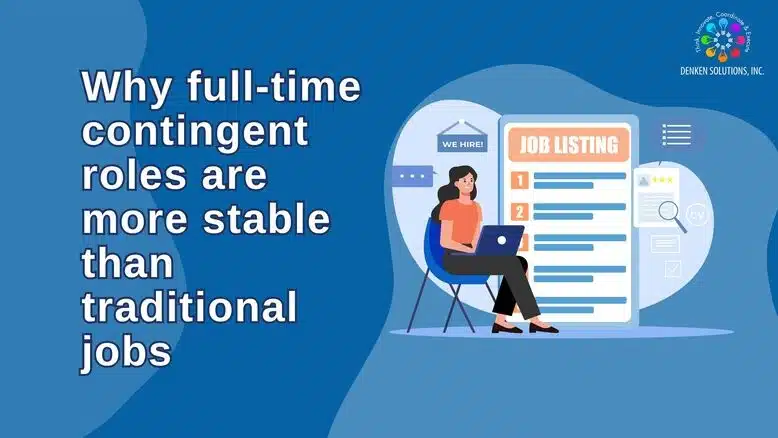A risk management analyst plays an important role in managing, identifying, and mitigating risks within an organization while also ensuring adherence to regulatory and governance requirements. As businesses are increasingly navigating complex regulatory environments, the role of a risk assessment specialist has become essential to maintain operational integrity, thus minimizing risks and ensuring compliance.
In this blog, we have given a comprehensive overview of the risk control analyst role, including the key job responsibilities, important skills, expected salary, and certifications that can enhance career prospects in the field. Whether you want to grow your team or are thinking about a career in risk management, this guide will help you grasp the essential facets of this vital position.
Who is a risk and governance analyst?
A risk management analyst is someone who plays a crucial role in identifying, managing risks, and evaluating within the organization, thus ensuring that operations are adhering to legal, regulatory, and internal governance standards. This role is especially important for companies that aim to navigate a complicated landscape of risks ranging from financial uncertainty and operational disruptions to regulatory non-compliance while also maintaining strong ethical and governance practices.
These analysts evaluate the risks that could affect the company and create plans to reduce such risks in close collaboration with senior management and other departments. Additionally, they make sure that the organization aligns its operations with corporate governance standards by adhering to internal policies and industry requirements.
Job description of a risk and governance analyst:
A risk control analyst is responsible for handling the risks that are associated with business-related operations and ensuring the company adheres to relevant tasks, regulations, and internal governance policies. This role requires a proactive approach to compliance monitoring, risk management, and ensuring that the organizational practices align with industry standards and regulatory requirements.
Responsibilities of a risk and governance analyst:
A risk mitigation consultant plays an important role in protecting an organization’s operations, thus ensuring that the risks are taken care of and that the company will comply with all the regulations. From identifying potential risks to maintaining strong governance structures, their responsibilities encompass mitigation, risk assessment, compliance monitoring, and internal audits.
1. Identifying and assessing the risk:
- Identifying the potential risks: This will include operational, regulatory, financial, strategic, and technological risks.
- Conducting regular risk assessments: The professional talent is expected to evaluate the likelihood and impact of multiple risks of the business.
- Developing the risk registers: This will include maintaining a comprehensive risk register to document and track the identified risks, including their status and mitigation strategies.
2. Risk management and mitigation:
- Develop the mitigation strategies: The talent should work closely with senior management and departmental heads to implement and create strategies to mitigate or reduce the identified risks.
- Create the contingency plans: Develop the detailed plans to address risks if they materialise, thus ensuring that the business can respond effectively.
- Monitor the risk reduction: Track the effectiveness of mitigation strategies and adjust them as required based on the evolving business environment.
3. Monitoring the compliance:
- Ensuring regulatory compliance: Ensure that the company sticks to the local, national, and international laws and regulations.
- Monitor the industry-specific regulations: The talent should stay updated on the industry-specific rules, thus ensuring compliance with financial, healthcare, and other requirements.
- Conduct the compliance audits: Perform regular audits to examine compliance and identify any gaps or areas for improvement.
4. Internal governance:
- Implementing the governance frameworks: This includes the talent that will establish and enforce governance structures, processes, and internal controls that guide the operations of the business.
- Ensuring ethical practices: The talent should ensure that the company’s activities align with the ethical standards and best practices within the industry.
- Support the internal controls: Review and monitor internal policies and procedures to ensure they meet the regulatory and governance standards.
5. Reporting and documentation:
- Prepare the risk reports: Develop the detailed reports that provide an overview of risks, the effectiveness of mitigation strategies, and areas that require attention.
- Reporting to the management: Inform stakeholders and top management on a frequent basis on the company’s governance concerns, compliance status, and risk posture.
- Keep records up to date: Maintain thorough records of governance policies, compliance audits, risk assessments, and mitigation measures.
6. Auditing risks and internal control monitoring:
- Regularly conduct audits: To find flaws in the governance and risk management procedures, conduct internal audits.
- Analyze internal controls: Determine how well the controls are working now and suggest changes to make them stronger.
- Examine incidents: When a risk event happens, look into its cause, effects, and mitigation strategies. Record your findings for future use.
Skills of a business analyst:
The role of a risk assessment specialist requires both technical and interpersonal skills. These professionals are required for assessing, identifying, and managing risks while also ensuring that the organization complies with relevant regulations and follows strong governance practices. A risk management analyst should understand complex risk factors, create mitigation strategies, and communicate the findings effectively across stakeholders and teams.
While having a deep understanding of regulatory frameworks and risk mitigation is vital, soft skills such as problem-solving, stakeholder management, and communication are equally important for the role. Given below are the key skills and qualities necessary for a risk control analyst:
1. Risk assessment and identification:
- They should have the ability to identify the potential risks that could affect the business
- Conduct thorough risk assessments to understand both the impact and likelihood of identified risks.
2. Developing strategy and mitigating risks:
- Developing strategies and plans to mitigate the identified risks and minimize their potential impact
- Collaborating with multiple departments to implement measures that will reduce risk effectively.
3. Regulatory and compliance knowledge:
- Stay updated on the relevant regulatory requirements and respective industry standards such as SOX, GDPR, and HIPAA.
- Ensure the company will adhere to the standards and perform the internal compliance audits regularly.
4. Internal controls and governance:
- Develop and maintain robust governance frameworks and internal control processes.
- Monitor and improve the existing governance practices to maintain ethical and compliant operations.
5. Clear communication and reporting process:
- Provide concise, useful reporting on governance procedures and risk assessments.
- Inform stakeholders and top management of your findings and suggestions.
Important risk and governance analyst certifications:
Certifications are an important aspect of professional development for risk control analysts as they validate expertise, provide a competitive edge in the field, and enhance credibility. The correct certifications will demonstrate a deep understanding of risk management, governance framework, and compliance standards, which are crucial for safeguarding an organization’s operations. Some of the most vital certifications that can ensure a risk and governance analyst’s career, thus helping them navigate complex risks while also ensuring the organization meets regulatory requirements.
- Certified in Risk and Information Systems Control (CRISC)
- Certified Information System Security Professional (CISSP)
- Certified Information Systems Auditor (CISA)
- Certified in the Governance of Enterprise IT (CGEIT)
- GRC Professional (GRCP)
- Certification in Risk Management Assurance (CRMA)
- Project Management Institute’s Risk Management Professional Certification (PMI-RMP)
- Certified Information Systems Security Professional (CSSP)
- Certified Compliance And Ethics Professional (CCEP)
- Certified Information Security Manager (CISM)
Salary of a risk and governance analyst:
The salary of a risk control analyst could vary depending on multiple factors, which include geographic location, industry, experience, and the size of the organization. Usually, these professionals are compensated well since the nature of their role in identifying and mitigating risks in critical areas. Generally, a risk management analyst with less than two years of experience earns a salary ranging from $55,000 to $75,000 annually. Professionals with more than five years of experience can earn between $100,000 $130,000 annually. Salaries vary significantly based on location. Risk assessment specialists in major financial hubs like New York or San Francisco often earn higher salaries.
Why should you choose Denken Solutions to apply for a risk and governance analyst position?
Choosing the right staffing agency is important when looking for a role in the risk management analyst sector. Denken Solution is a trusted partner for professionals seeking to advance their careers in the risk management field. This is why you should consider applying for a risk mitigation analyst position through us:
1. Expertise in governance and risk staffing:
At Denken Solutions, we specialise in connecting the top talent with leading companies across multiple industries. With a deep understanding of the risk control analyst landscape, we help in matching candidates with roles that align with their skills and career goals.
2. Vast network of trusted employers:
We partner with leading organizations, which include financial institutions, corporate enterprises, and consulting firms, thus providing candidates with access to a wide range of high-quality career opportunities.
3. Streamlined recruitment process:
We eliminate the hassle of job search by managing the entire recruitment process. From screening to interviews and negotiations, we make sure that you secure the ideal risk assessment specialist role smoothly and efficiently.
4. Unbiased communication:
We take great satisfaction in communicating in an honest and open manner. We make sure you are informed and comfortable at every stage of the hiring process by giving you frequent updates and feedback.
5. Career guidance and assistance:
We support candidates’ professional development in addition to finding them employment. Working with Denken Solutions gives you access to training opportunities, career guidance, and continuous support, enabling you to advance your career and build your skill set.
6. Competitive salary:
We make sure you are appropriately compensated for your knowledge by offering competitive salaries and extensive benefits for the risk control analyst opportunities we provide through our collaboration with businesses.
Conclusion:
The role of a risk and governance analyst is important for ensuring that an organization is effectively managing the risks while also adhering to regulatory requirements and maintaining the respective governance practices. With responsibilities ranging from mitigation strategies and risk identification to internal governance and compliance monitoring, this position will need a unique blend of communication skills, industry expertise, and analytical thinking.
The required skills include risk management knowledge, problem-solving, and stakeholder management, which makes this a highly valuable role across multiple industries. Additionally, certifications such as FRM, CRISC, and CISA can help professionals advance in their careers, while the competitive salary will reflect the complexity and importance of the job.
A skilled Risk and Governance Analyst is crucial for companies to protect operations, stay in compliance with regulations, and promote a risk-aware culture. In addition to reducing any dangers, this position guarantees the organization’s long-term stability and prosperity.



